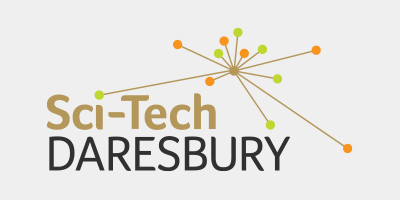December 28, 2018
Digital Transformation in the Engineering Sector
“Industrial digitalisation is about how manufacturers can start their own industrial revolution by using digital to make things smarter, better and faster”.

These prophetic words come from Siemens UK CEO Juergen Maier in his foreword for the seminal Made Smarter Review, which was published in November 2017.
This influential review was launched with the aim of identifying the barriers and solutions for UK businesses to capitalise on the Fourth Industrial Revolution (4IR) and digital technologies that will see the UK being a world leader in 4IR by 2030.
The UK is already on that pathway as engineering, manufacturing and the construction sectors – all intrinsically linked – are adopting and integrating new technologies into the working processes, whilst also ploughing in substantial sums of money into R&D.
At the top level, the OEMs and Tier 1s are driving this forward as they surge forward with the multi-adoption of 4IR technologies including:
- RFID – radio-frequency identification (digital encoded data)
- Additive Manufacturing (3D printing)
- Digital Twins
- BIM (Building Information Modelling)
- Automation/Robotics
- AI (Artificial Intelligence)
- Cloud Computing
- AR/VR (Augmented Reality/Virtual Reality)
- IIOT (Industrial Internet of Things)
But the challenge is on for businesses in the engineering supply chain – the SMEs and start-ups to explore how they can utilise these digital technologies in their operations to increase productivity and drive efficiency.
The UK engineering landscape is changing as investment in technology delivers greater return across the heavily industrialised sectors like aerospace, automotive and construction, while pharma manufacturing and food and drink are also benefiting.
For those businesses that have procrastinated over the adoption of digital technology, they run the risk of falling further behind as a key finding in a recently published report by Capgemini - Digital Engineering: The new growth engine for discrete manufacturing, noted that manufacturers estimate that close to 50 per cent of their products will be smart and connected by 2020, a 35 per cent increase from 2014.
This should be a huge incentive for businesses to get on the digital transformation journey. The first step is to create a digital strategy and begin assessing where even ‘small’ improvements can be used such as introducing cloud computing or AI software for more manual tasks. It does not have to break the bank.
But it is evident that the need to be onboard with digital transformation is definitely necessary as it is due to expand even more in 2019. Manufacturing Global has looked into the future and identified the top 10 trends that will impact this coming year.
Cherry picking from the list, blockchain technology, AR/VR and AI/Machine learning are expected to have an even greater impact this next 12 months, while its No 1 trend will see increased collaboration between industry and universities, which already happens on a large scale at Sci-Tech Daresbury.
On Blockchain
“Blockchain is now taking the manufacturing world by storm. The coming year will see a direct impact of blockchain on financial operations, boosting speed, security and a cost-effective solution to transactions.
Looking at the supply chain, blockchain technologies will also influence different areas from management, tracking and transaction reporting.”
On AR/VR
“The majority of manufacturers, or those working in the sector, have encountered some form of virtual or augmented reality in recent years. Whether it is quirky start-ups or large-scale global brands, we are set to see more of this technology incorporated into existing processes and products to enhance the overall experience.
We will continue to see new companies emerge, identifying innovative ways of adopting it, while established organisations will mine their business to uncover areas of improvement.”
On AI/Machine learning
“Data may be the crude oil of the 21st century, but without the ability to analyse and action based on tangible, accurate insights, it is simply taking up space. This is where artificial intelligence (AI) and machine learning comes in – having the ability to manage volumes of data, generate legible insights and proffer solutions will greatly increase manufacturers’ responsiveness, improving efficiency and helping identify new business opportunities.”
On Industry – University collaboration
“There has long been an understanding of the value of industry/university collaborations. In 2019, links between industry and academia will continue to strengthen as both sides seek to use the resources and expertise of the other to enhance their own offerings and increase their understanding of the theoretical and practical applications of new technologies.”
Engineering firms that want to benefit from 4IR technology and be part of a forward-thinking and collaborative environment, are invited to come and talk to us, see the Sci-Tech Daresbury facilities and witness first-hand, the role digital technologies are having on us and the companies located on the campus through collaborative centres such as the Hartree Centre (www.hartree.stfc.ac.uk) and the Virtual Engineering Centre (www.virtualengineeringcentre.com).
Sources
https://www.manufacturingglobal.com/top-10/top-10-manufacturing-trends-2019
https://www.sci-techdaresbury.com/the-facilities-delivering-industry-4-0/



